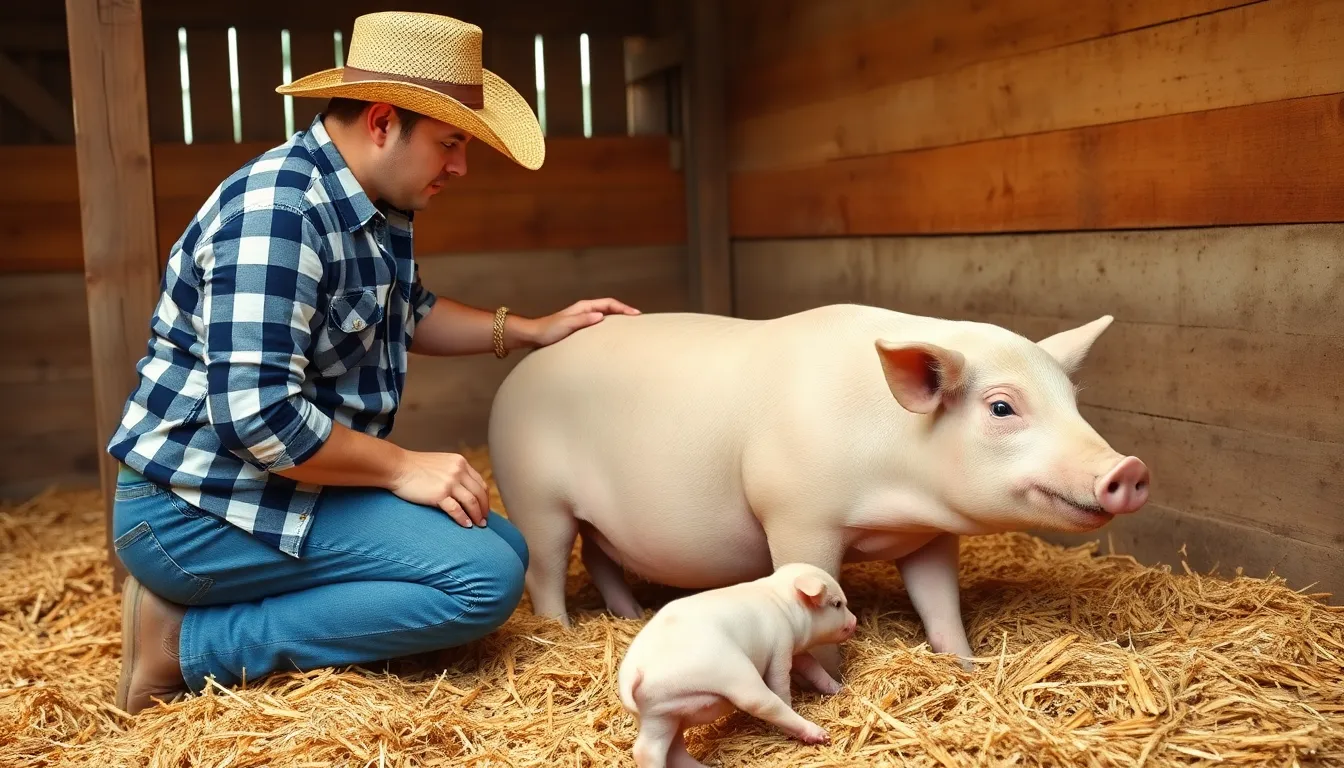In the bustling world of business jargon, the term “sow business” might just sound like a farmer’s daydream. But don’t be fooled; it’s not about planting crops or raising livestock. Instead, it’s a clever metaphor for planting the seeds of success in the entrepreneurial landscape. Just as a farmer nurtures their crops, savvy entrepreneurs cultivate their ideas to reap a bountiful harvest.
Sow Business Meaning
Sow business refers to the process of nurturing and developing entrepreneurial ideas to achieve success. This figurative expression compares the entrepreneurial journey to planting seeds and tending to them for growth.
Definition of Sow Business
Sow business encompasses the practices entrepreneurs employ to cultivate innovative concepts into viable ventures. It involves generating ideas, conducting market research, and establishing strategies. The aim focuses on transforming an initial idea into a thriving business. Success hinges on how well entrepreneurs care for these ideas, similar to how a farmer nurtures crops.
Importance in Agriculture and Economy
Sow business plays a crucial role in both agriculture and the broader economy. In agriculture, it represents the initial phase of planting seeds, essential for crop production. Successful sowing leads to increased yields and food security. Economically, sow business promotes innovation, job creation, and market competition. Healthy entrepreneurial ecosystems boost local economies by contributing to GDP growth and improving community resilience.
Types of Sow Business

Understanding the various types of sow business is crucial for entrepreneurs looking to nurture their ideas effectively. Two prominent types include sow breeding and sow production.
Sow Breeding
Sow breeding focuses on enhancing genetic traits in pigs to achieve desirable characteristics. Genetic selection plays a vital role in improving traits like growth rate, feed efficiency, and disease resistance. By utilizing advanced techniques such as artificial insemination and genomics, breeders can create healthier and more productive pig populations. Effective sow breeding programs lead to a sustainable supply of quality livestock, thus affecting overall farm productivity.
Sow Production
Sow production involves the management of breeding sows to maximize offspring output. It includes ensuring optimal nutrition and maintaining a comfortable environment for the sows. Practicing effective herd management contributes to reproduction rates and overall piglet survival. Monitoring health and well-being throughout the sow’s life cycle is essential for achieving high production levels. Implementing best practices in this area enhances efficiency and profitability for businesses engaged in pig farming.
Key Factors in Sow Business Success
Success in sow business relies heavily on understanding key factors that drive profitability and sustainability. Important components include thorough market analysis and meticulous financial planning.
Market Analysis
Conducting market analysis provides insight into consumer trends and industry demands. Identifying target demographics informs business strategies aimed at effective marketing. Competitor assessments reveal opportunities for differentiation, spotlighting unique selling propositions. Additionally, understanding pricing strategies helps set competitive rates while maintaining lucrative margins. Utilizing data from market surveys and industry reports can guide decision-making, optimizing product offerings for better alignment with consumer needs. Continuous monitoring of shifts in market conditions ensures agility in adapting to new challenges and capitalizing on emerging trends.
Financial Planning
Effective financial planning serves as the backbone of a successful sow business. Establishing a comprehensive budget dictates resource allocation and spending priorities. Forecasting cash flow enables proactive management of expenses and investments, maintaining operational liquidity. Identifying funding sources such as loans or investors can support expansion efforts and innovation initiatives. Evaluating profitability through regular financial reports provides insights into operational efficiency and areas for improvement. Implementing risk management strategies further safeguards against unforeseen financial downturns, enhancing overall stability in the business landscape.
Challenges in the Sow Business
Sow business faces several significant challenges that impact its success. Understanding these issues is essential for aspiring entrepreneurs.
Disease Management
Disease management poses a critical challenge in the sow business. Illness can severely affect productivity and profitability. Common diseases include Porcine Reproductive and Respiratory Syndrome (PRRS) and Swine Influenza, which lead to high mortality rates and reduced growth. Implementing biosecurity measures helps prevent disease outbreaks. Vaccination programs also play a vital role in controlling health risks. Recognizing symptoms early allows for timely intervention, minimizing losses. Moreover, effective record-keeping aids in monitoring health trends, supporting proactive management strategies.
Market Fluctuations
Market fluctuations significantly impact the sow business’s viability. Prices for pork and feed can vary widely, influenced by supply and demand dynamics. Economic conditions such as inflation and changing consumer preferences contribute to this instability. Effective financial planning allows entrepreneurs to cushion against unexpected downturns. Diversifying product offerings can also mitigate risks associated with market dips. Staying informed about market trends and conducting regular analyses helps identify opportunities. Maintaining flexibility in operations ensures adaptability during turbulent times.
Conclusion
Understanding the concept of sow business is essential for aspiring entrepreneurs. It emphasizes the need to nurture ideas and implement effective strategies to achieve success. By drawing parallels with agriculture, it highlights the importance of careful planning and management in transforming concepts into thriving ventures.
With a focus on financial stability and market analysis, entrepreneurs can navigate challenges and seize opportunities in a competitive landscape. The insights gained from this approach not only foster individual success but also contribute to broader economic growth. Embracing the principles of sow business can lead to sustainable practices and innovation that benefit both the entrepreneur and the community.


